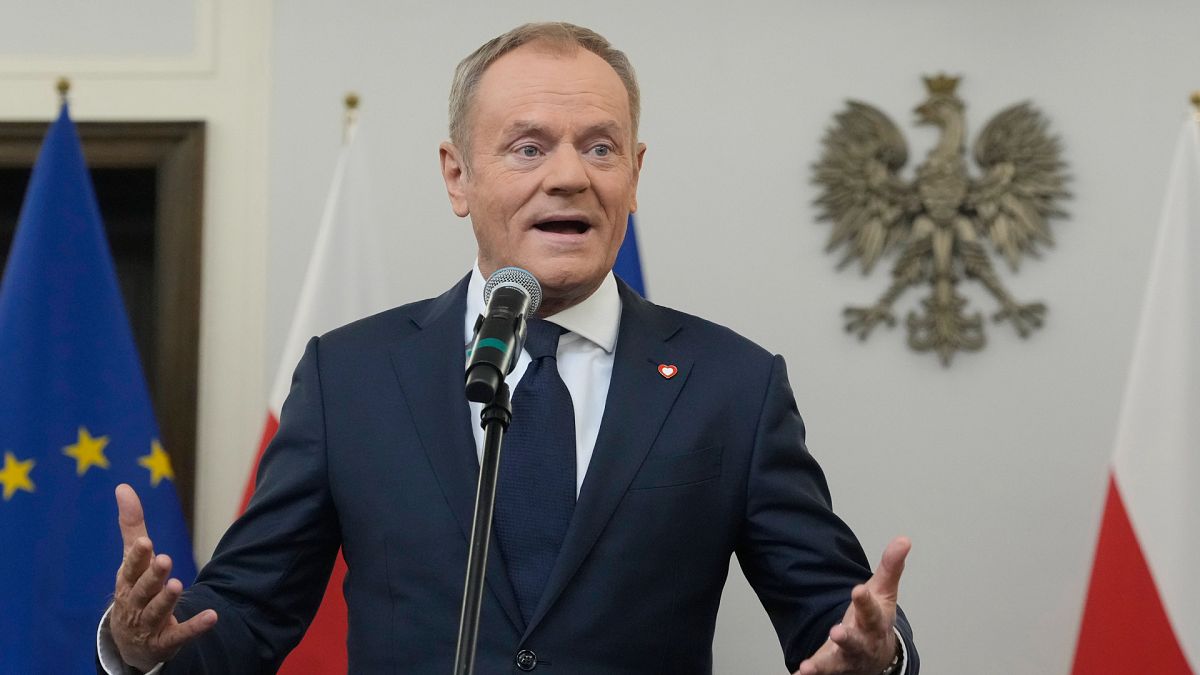The Polish parliament is holding its first meeting since the country's October elections, as two opposing camps are claiming victory and aspiring to form the government.
Poland’s president Andrzej Duda has announced that his own right-wing Law and Justice party will form the country's government despite it not winning enough seats in the latest election.
While three opposition factions, which together won the parliamentary majority, decided to sign a coalition agreement.
The Law and Justice party has 194 seats out of 460, against a declared majority of 248 deputies, who are members of the allied pro-European groups: Donald Tusk's centrist Electoral Coalition, the Christian Democratic Third Way and the Left.
The ultra-nationalist far right, which is distancing itself from the two main camps, has 18 MEPs.
The coalition is seen as a declaration of stable shared governance and is intended as a policy statement of the future government as soon as the opposition comes to power.
"We really want Poles [...] to be able to see that, from now on, we are ready to take responsibility for our country", explained Tusk.
The document sets out the allies' position on burning issues such as the country's economic and environmental management, the rebuilding of its relationships with the European Union, the reconstruction of the public media, the separation of church and state and abortion.
"We must start with the reconstruction of our relations with the European Union institutions, understood as reaching the moment when the funds are resumed, EU funds which today are blocked for Poland," Michal Kobosko, a member of Third Way, said.
"It is of course connected to the principles of law, with the order of law in Poland, and the European Commission will want to see changes in the rule of law regarding the independence of Polish judges, Polish courts."
If Morawiecki's mission to form a government fails, the opposition will not take the reins of power until mid-December.
